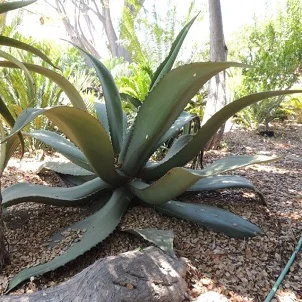IN AGAVE WE TRUST, LLC
Agave Species in Mexican Spirits: Mexico’s agave spirits derive their distinct flavors from over 40 species of agave, each tied to specific regions and traditions. The most iconic is Blue Weber agave (Agave tequilana), the sole variety permitted for tequila, which thrives in Jalisco and parts of Guanajuato, Michoacán, Nayarit, and Tamaulipas. Meanwhile, mezcal showcases remarkable biodiversity, utilizing over 30 agave species across nine states, including Oaxaca, Durango, and Guerrero. Key varieties include Espadín (Agave angustifolia), the backbone of 80% of mezcal production, prized for its high sugar content and versatility . Wild-harvested species like Tobalá, a small, slow-growing plant with floral notes, and Tepeztate, which matures over 35 years, contribute earthy and tropical flavors. Other notable mezcal agaves include Arroqueño, known for herbal complexity, and Cenizo (Agave durangensis), which thrives in Durango’s extreme climates, yielding smoky, caramel-infused spirits. PULQUE
BLUE AGAVE
BLANCO AMERICANO
ARROQUENO
MADRECUIXE
PAPALOMETL
TOBOLA
BARRIL
AMERICANO
MEXICANO
JABALI
TOBASICHE
SALMIANA
TEPEZTATE
CELSI
CIRIAL
APPIANATA
ESPADIN
PAPALOTE
PINTO FROM LOS ALTOS
Beyond tequila and mezcal, regional specialties highlight lesser-known agave species. Raicilla, from western Jalisco and Nayarit, employs Agave maximiliana (mountain regions) and Agave angustifolia (coastal areas), producing floral or mineral-driven spirits depending on terroir. Bacanora, exclusive to Sonora, uses Agave angustifolia pacifica, yielding vibrant, semi-smoky profiles. Though not technically an agave, sotol—crafted from Dasylirion (desert spoon plant) in northern states like Chihuahua is often grouped with agave spirits for its similar production methods and earthy character. These species, alongside others like Madrecuixe (Agave karwinskii) and Cupreata (Agave cupreata), underscore Mexico’s agave diversity, shaped by centuries of tradition and strict Denominations of Origin






















